Does the idea of writing a song, seem overwhelming to you? An ability that is only available to a small minority?
Well.. I firmly believe that everyone has unique creative expression. And you should start exploring yours.
Belief
My music charity run workshops every day with people of all ages and abilities, who usually have no musical experience.
We have helped people with disabilities, stroke survivors, school kids & members of the public, from a huge mix of backgrounds - express themselves through songwriting.
Everyone has creative abilities - and everyone deserves the opportunity to explore and express that potential.
The Process
When my charity enter a new songwriting session, we start by listening to well known songs, that fit the tastes of our attendees.
We will perform tracks live, that suit their interests - while also handing out percussion instruments. These inclusive items, help make participation possible for everyone - regardless of their experience. The process of playing a simple instrument with other people, is also the perfect way to start building musical confidence.
Tip: Start to think about what instruments are appealable to you - and begin to build your confidence with them.
Demystify Songwriting
Often, the biggest hits are simple songs (in terms of chord progressions and musical complexity) - And it’s so exciting to see people realise this, once we demonstrate how obtainable the songwriting process can be. The resulting boost in confidence and self-esteem this provides is a great catalyst for helping them realise their potential.
When you hear the final version of a song, the result can seem unattainable. But some simple deconstruction, begins to show that they’re not as complex as you might think.
Tip: Listen to a wide mix of music, and try to identify different elements of the track. How many instruments can you hear? How tight are the bass and drums playing alongside each other? Is the lead keyboard melody, just following the vocal line? Can you hear any harmonies behind the main vocal? If wearing headphones, what parts are dominant in each ear?
Theory
We then do our best to simplify music theory. In it’s most basic form, this will start by emphasising the difference between major chords (happy sounding) and minor chords (sad sounding). We also stick to the notes A - G - and exclude any sharps or flats. These simple adjustments make music theory sound far less daunting.
Participants then choose the chords, by calling out the letters. We perform each one, and follow their choices. Occasionally, we may apply some gentle guidance to avoid overly tense or unresolved sounds. But remember, in music, there's no right or wrong - what might sound off-putting to some, could be pure delight to another.
Tip: Try that for yourself. Pick 4 random letters between A - G and play each as minor or major. See what they sound like alongside each other. And then experiment with the order, and how long you stay on each one for. You’re up and running - and effectively writing your first song!
If you don’t currently play an instrument. Use software like Logic and a MIDI keyboard to help you.
I break the songwriting process down in a lot more detail in this video:
Tempo and Rhythm Exploration - To further understand the music making process, we utilise popular songs to introduce tempo and rhythm. This not only personalises the experience by incorporating attendees' favourite tracks but also helps them apply these elements to their own chord progressions. To help understand rhythm further, we conduct some simple start/stop, fast slow, loud/quiet exercises. These are fun, easy to follow and effectively demonstrate how the simplest changes, can have a big impact on the mood and music you’re creating.
Tip: So.. start to really listen to your favourite tracks. What do you want to take from them and incorporate into your own compositions?
Lyric Writing Workshop - Our charity groups start with guided discussions - covering individuals thoughts and feelings, or shared group experiences. To get the ball rolling, a theme can be as simple as - what are your favourite hobbies - or - who are the people that are most important in your life. Both of these work well with younger years, but can be adjusted to all age groups.
We are looking to encourage participation without pressure. Our aim is to facilitate a comfortable environment for creative expression.
A useful strategy is to begin with a chorus that encapsulates the song's message, then expand into verses that delve deeper into the narrative. A Stroke Survivor group we worked with, started with the chorus line:
‘It’s time to move, don’t be afraid
It’s time move, it’s just a phase’
This was designed to encapsulate their Stroke recovery. The verses then just became an extension of that.
Another tip for your own lyric writing is to record all the music first - and then play the track back and simply see what comes to mind. Start with mumbles. Throw random words out. Try to let your mind wander and see what sounds start to appear. You’d be surprised how many artists approach recording in this way. No set lyrics. Just an openness, that allows words to come through, and can be turned into lyrical lines later on.
Matt Berninger from The National talks about this a lot. He had a great conversation on the Sodajerker Podcast. Check it here.
Recording and Performing Recording is a crucial step, offering a reflective look at the groups progress. For those new to music, MIDI keyboards and iPads provide simple yet effective tools for exploring different sounds. Adaptations like tuning guitars to the key your song is in, means you can just strum the open chords. Or utilising Ukuleles for their one-finger chords is a great option!
All of these options heighten accessibility.
Tip: Get familiar with recording as soon as possible. If you’re strumming a simple riff on your guitar, get it recorded! You will learn so much from the process. Even if you’re only using your phones camera or voice recorder - the insight you receive is invaluable. Try it.
Actionable Tips To Get You Started:
Simple Approaches: Use familiar songs for reference & inspiration. Bring your personal music preferences into the process. The famous line ‘steal like an artist’ can apply here. This basically means that ‘we all learn and draw inspiration from the work of other artists’
Simplify Music Theory: Focus on basic elements to make songwriting accessible.
Chord Construction: Even if you only know a handful of open chords on the guitar, start there. You only need 2 or 3. Single strum them. Reverse the order. Fingerpick. Generally just see how much you can get out of those few basic chords. Want a different sound/key? Put a capo on and move those chord shapes up and down the neck. Or grab a Ukulele and discover a world of 1 finger chords!
Record and Reflect: Use recordings as a way to reference your progress. You get a totally different perspective on what you’re creating. Recording is a wonderful skillset to have available to you. I promise, you will lose days of your life getting lost in the recording process. And I mean that in a good way!
Two great examples of what our attendees achieve in songwriting sessions can be found here:
Give me a shout if you have any questions or want to take this discussion further.
🌍 Links
🎸 Learn Guitar: The Complete Beginners Guide
🎸 Guitar Practice: Improve Finger Strength, Stretch, Speed & Independence
All of my other instrument classes can be found on Skillshare. This link gives you 1 month FREE access to my courses and the entire Skillshare site.
🙋♂️Follow me for more guitar, bass & ukulele related chat & tutorials:
🧡 My Music Charity
Speak soon,
Marc
x

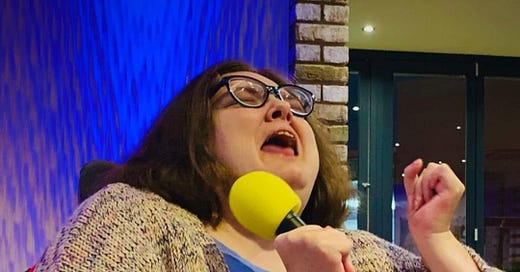



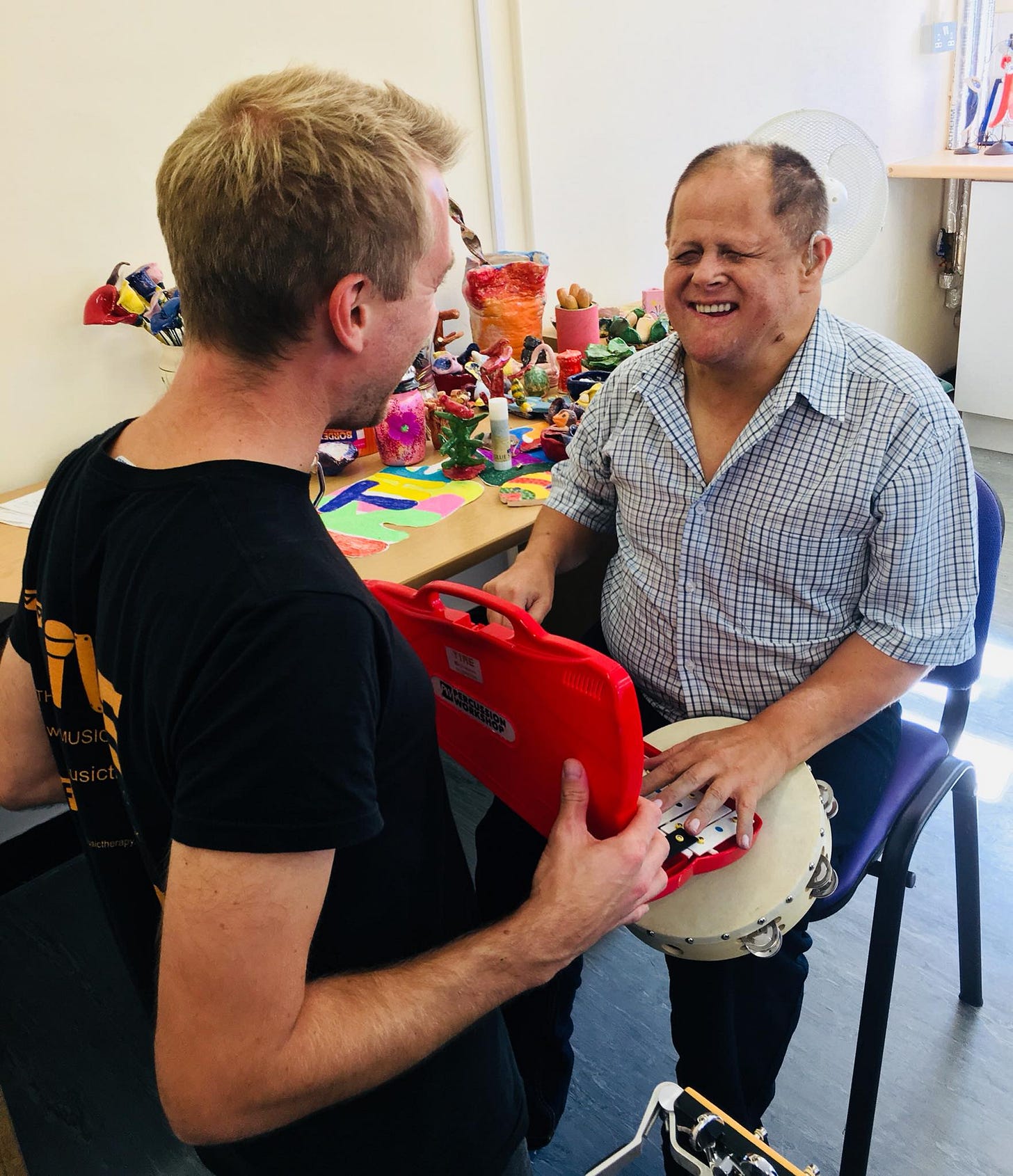
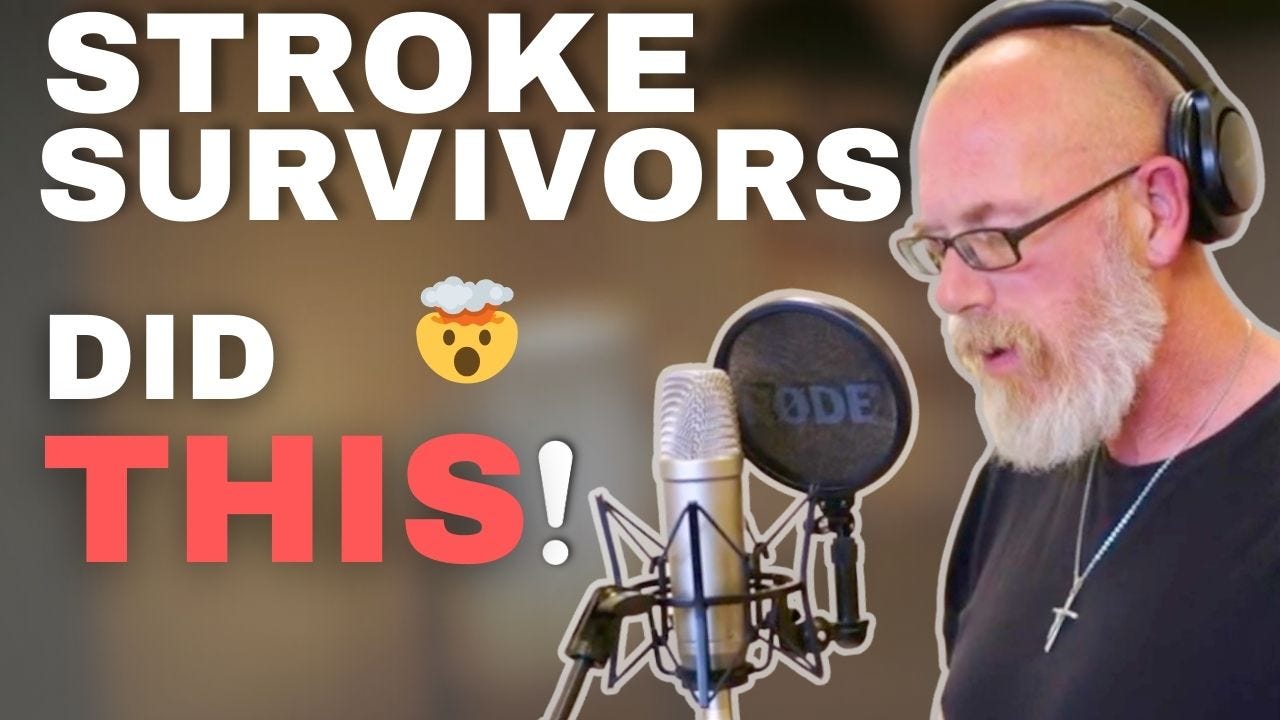
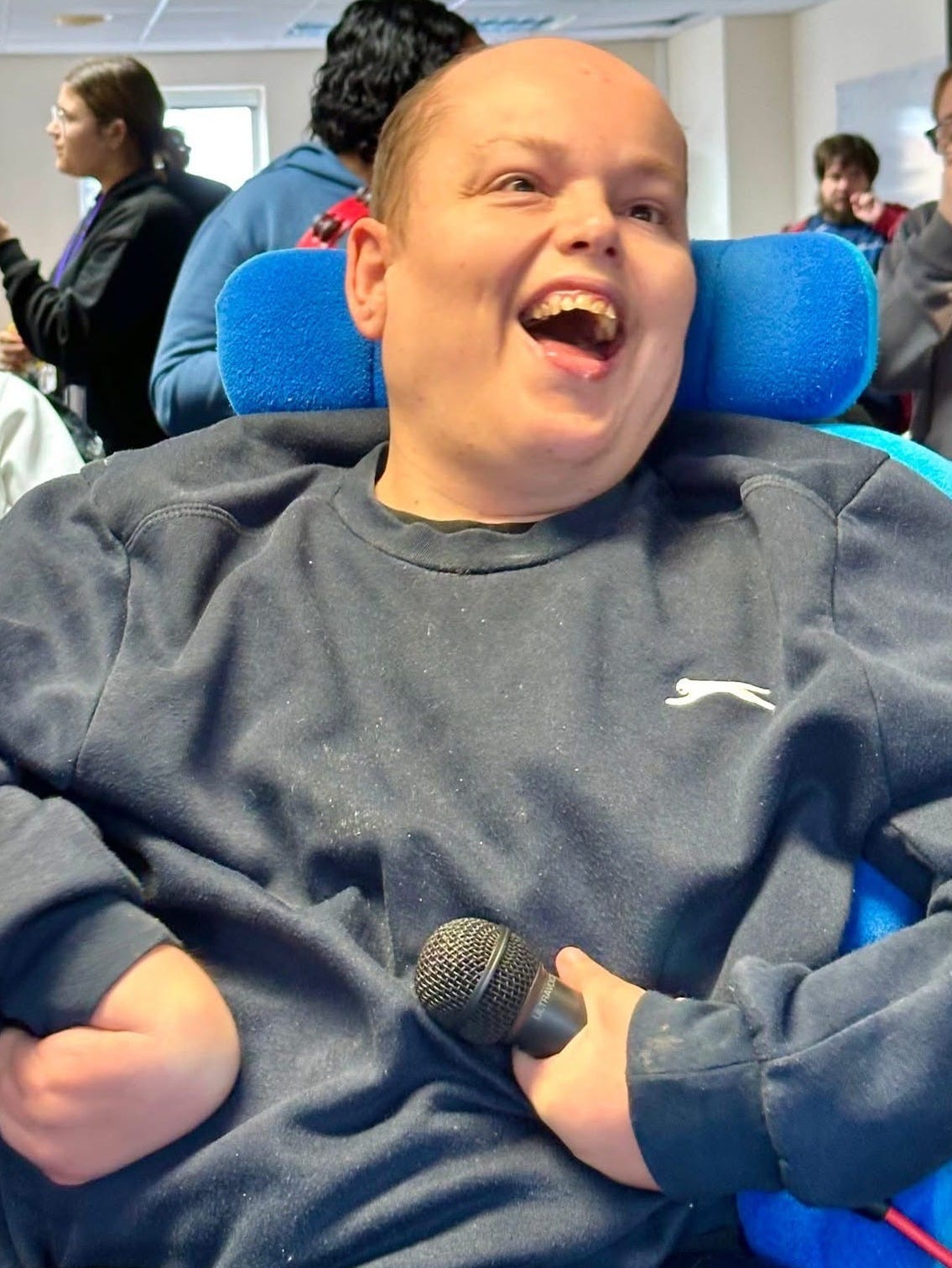
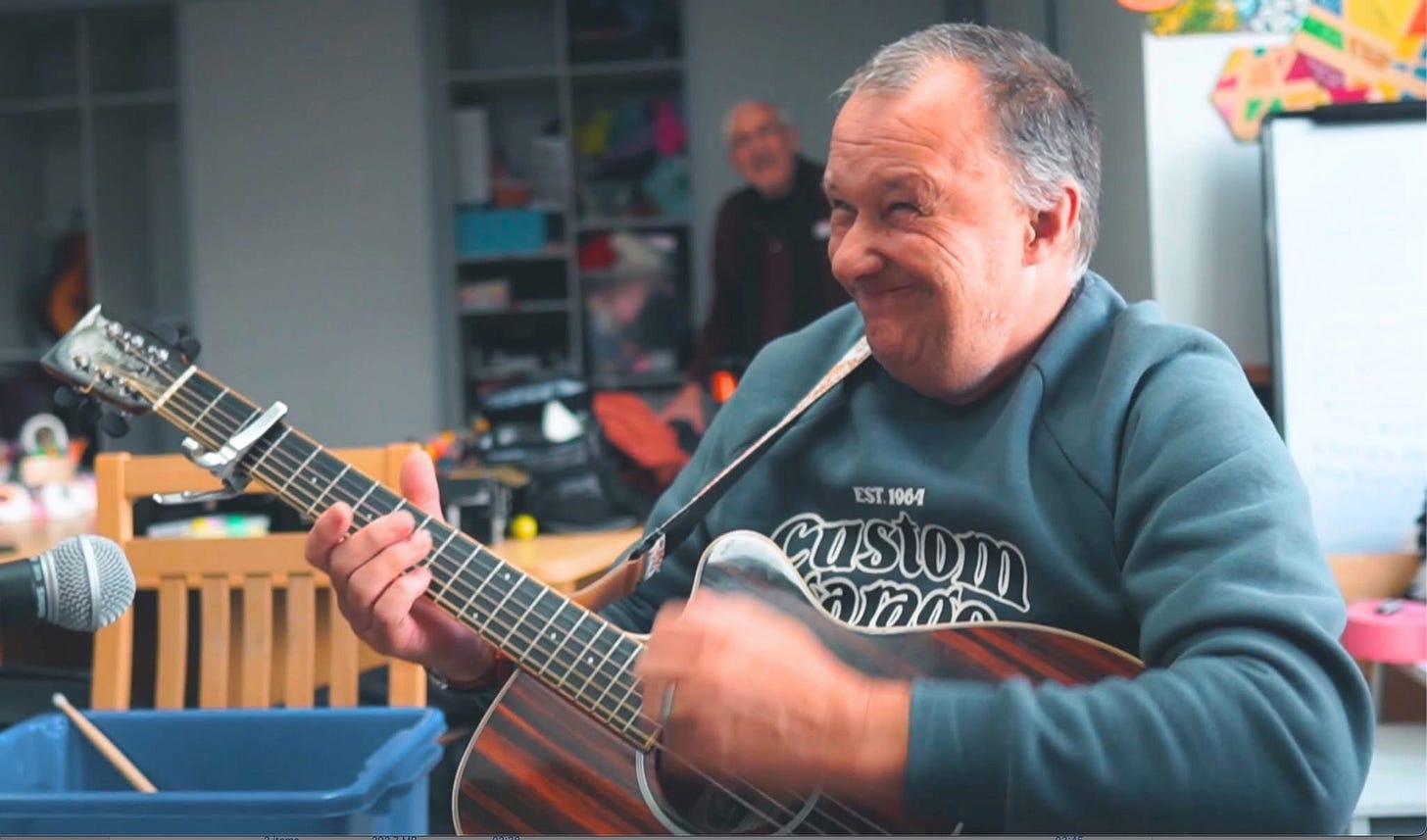
That's truly beautiful to see people with different stories, disabilities share the Joy of Writing music. Love the music charity you do.
Melted my Heart ❤️☺️